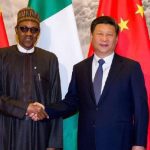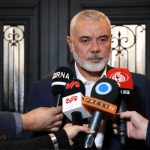Palestinian factions have signed a “national unity” agreement aimed at maintaining Palestinian control over Gaza once Israel’s war on the enclave concludes.
The deal, finalised on Tuesday in China after three days of intensive talks, lays the groundwork for an “interim national reconciliation government” to rule post-war Gaza, said Chinese Foreign Minister Wang Yi.
The agreement was signed by long-term rivals Hamas and Fatah, as well as 12 other Palestinian groups.
Mustafa Barghouti, secretary-general of the Palestinian National Initiative, one of the 14 factions to sign the accord, told Al Jazeera the agreement goes “much further” than any other reached in recent years.
He said its four main elements are the establishment of an interim national unity government, the formation of unified Palestinian leadership ahead of future elections, the free election of a new Palestinian National Council, and a general declaration of unity in the face of ongoing Israeli attacks.
The move towards a unity government is especially important, he said, because it “blocks Israeli efforts to create some sort of collaborative structure against Palestinian interests”.
Reconciliation between Hamas and Fatah would be a key turning point in internal Palestinian relations.
The two main Palestinian political parties in the Palestinian territory have been bitter rivals since conflict arose in 2006, after which Hamas seized control of Gaza.
Palestinian factions have signed a “national unity” agreement aimed at maintaining Palestinian control over Gaza once Israel’s war on the enclave concludes.
The deal, finalised on Tuesday in China after three days of intensive talks, lays the groundwork for an “interim national reconciliation government” to rule post-war Gaza, said Chinese Foreign Minister Wang Yi.
The agreement was signed by long-term rivals Hamas and Fatah, as well as 12 other Palestinian groups.
Mustafa Barghouti, secretary-general of the Palestinian National Initiative, one of the 14 factions to sign the accord, told Al Jazeera the agreement goes “much further” than any other reached in recent years.
He said its four main elements are the establishment of an interim national unity government, the formation of unified Palestinian leadership ahead of future elections, the free election of a new Palestinian National Council, and a general declaration of unity in the face of ongoing Israeli attacks.
The move towards a unity government is especially important, he said, because it “blocks Israeli efforts to create some sort of collaborative structure against Palestinian interests”.
Reconciliation between Hamas and Fatah would be a key turning point in internal Palestinian relations.
The two main Palestinian political parties in the Palestinian territory have been bitter rivals since conflict arose in 2006, after which Hamas seized control of Gaza.
Palestinian factions have signed a “national unity” agreement aimed at maintaining Palestinian control over Gaza once Israel’s war on the enclave concludes.
The deal, finalised on Tuesday in China after three days of intensive talks, lays the groundwork for an “interim national reconciliation government” to rule post-war Gaza, said Chinese Foreign Minister Wang Yi.
The agreement was signed by long-term rivals Hamas and Fatah, as well as 12 other Palestinian groups.
Mustafa Barghouti, secretary-general of the Palestinian National Initiative, one of the 14 factions to sign the accord, told Al Jazeera the agreement goes “much further” than any other reached in recent years.
He said its four main elements are the establishment of an interim national unity government, the formation of unified Palestinian leadership ahead of future elections, the free election of a new Palestinian National Council, and a general declaration of unity in the face of ongoing Israeli attacks.
The move towards a unity government is especially important, he said, because it “blocks Israeli efforts to create some sort of collaborative structure against Palestinian interests”.
Reconciliation between Hamas and Fatah would be a key turning point in internal Palestinian relations.
The two main Palestinian political parties in the Palestinian territory have been bitter rivals since conflict arose in 2006, after which Hamas seized control of Gaza.
Palestinian factions have signed a “national unity” agreement aimed at maintaining Palestinian control over Gaza once Israel’s war on the enclave concludes.
The deal, finalised on Tuesday in China after three days of intensive talks, lays the groundwork for an “interim national reconciliation government” to rule post-war Gaza, said Chinese Foreign Minister Wang Yi.
The agreement was signed by long-term rivals Hamas and Fatah, as well as 12 other Palestinian groups.
Mustafa Barghouti, secretary-general of the Palestinian National Initiative, one of the 14 factions to sign the accord, told Al Jazeera the agreement goes “much further” than any other reached in recent years.
He said its four main elements are the establishment of an interim national unity government, the formation of unified Palestinian leadership ahead of future elections, the free election of a new Palestinian National Council, and a general declaration of unity in the face of ongoing Israeli attacks.
The move towards a unity government is especially important, he said, because it “blocks Israeli efforts to create some sort of collaborative structure against Palestinian interests”.
Reconciliation between Hamas and Fatah would be a key turning point in internal Palestinian relations.
The two main Palestinian political parties in the Palestinian territory have been bitter rivals since conflict arose in 2006, after which Hamas seized control of Gaza.
Palestinian factions have signed a “national unity” agreement aimed at maintaining Palestinian control over Gaza once Israel’s war on the enclave concludes.
The deal, finalised on Tuesday in China after three days of intensive talks, lays the groundwork for an “interim national reconciliation government” to rule post-war Gaza, said Chinese Foreign Minister Wang Yi.
The agreement was signed by long-term rivals Hamas and Fatah, as well as 12 other Palestinian groups.
Mustafa Barghouti, secretary-general of the Palestinian National Initiative, one of the 14 factions to sign the accord, told Al Jazeera the agreement goes “much further” than any other reached in recent years.
He said its four main elements are the establishment of an interim national unity government, the formation of unified Palestinian leadership ahead of future elections, the free election of a new Palestinian National Council, and a general declaration of unity in the face of ongoing Israeli attacks.
The move towards a unity government is especially important, he said, because it “blocks Israeli efforts to create some sort of collaborative structure against Palestinian interests”.
Reconciliation between Hamas and Fatah would be a key turning point in internal Palestinian relations.
The two main Palestinian political parties in the Palestinian territory have been bitter rivals since conflict arose in 2006, after which Hamas seized control of Gaza.
Palestinian factions have signed a “national unity” agreement aimed at maintaining Palestinian control over Gaza once Israel’s war on the enclave concludes.
The deal, finalised on Tuesday in China after three days of intensive talks, lays the groundwork for an “interim national reconciliation government” to rule post-war Gaza, said Chinese Foreign Minister Wang Yi.
The agreement was signed by long-term rivals Hamas and Fatah, as well as 12 other Palestinian groups.
Mustafa Barghouti, secretary-general of the Palestinian National Initiative, one of the 14 factions to sign the accord, told Al Jazeera the agreement goes “much further” than any other reached in recent years.
He said its four main elements are the establishment of an interim national unity government, the formation of unified Palestinian leadership ahead of future elections, the free election of a new Palestinian National Council, and a general declaration of unity in the face of ongoing Israeli attacks.
The move towards a unity government is especially important, he said, because it “blocks Israeli efforts to create some sort of collaborative structure against Palestinian interests”.
Reconciliation between Hamas and Fatah would be a key turning point in internal Palestinian relations.
The two main Palestinian political parties in the Palestinian territory have been bitter rivals since conflict arose in 2006, after which Hamas seized control of Gaza.
Palestinian factions have signed a “national unity” agreement aimed at maintaining Palestinian control over Gaza once Israel’s war on the enclave concludes.
The deal, finalised on Tuesday in China after three days of intensive talks, lays the groundwork for an “interim national reconciliation government” to rule post-war Gaza, said Chinese Foreign Minister Wang Yi.
The agreement was signed by long-term rivals Hamas and Fatah, as well as 12 other Palestinian groups.
Mustafa Barghouti, secretary-general of the Palestinian National Initiative, one of the 14 factions to sign the accord, told Al Jazeera the agreement goes “much further” than any other reached in recent years.
He said its four main elements are the establishment of an interim national unity government, the formation of unified Palestinian leadership ahead of future elections, the free election of a new Palestinian National Council, and a general declaration of unity in the face of ongoing Israeli attacks.
The move towards a unity government is especially important, he said, because it “blocks Israeli efforts to create some sort of collaborative structure against Palestinian interests”.
Reconciliation between Hamas and Fatah would be a key turning point in internal Palestinian relations.
The two main Palestinian political parties in the Palestinian territory have been bitter rivals since conflict arose in 2006, after which Hamas seized control of Gaza.
Palestinian factions have signed a “national unity” agreement aimed at maintaining Palestinian control over Gaza once Israel’s war on the enclave concludes.
The deal, finalised on Tuesday in China after three days of intensive talks, lays the groundwork for an “interim national reconciliation government” to rule post-war Gaza, said Chinese Foreign Minister Wang Yi.
The agreement was signed by long-term rivals Hamas and Fatah, as well as 12 other Palestinian groups.
Mustafa Barghouti, secretary-general of the Palestinian National Initiative, one of the 14 factions to sign the accord, told Al Jazeera the agreement goes “much further” than any other reached in recent years.
He said its four main elements are the establishment of an interim national unity government, the formation of unified Palestinian leadership ahead of future elections, the free election of a new Palestinian National Council, and a general declaration of unity in the face of ongoing Israeli attacks.
The move towards a unity government is especially important, he said, because it “blocks Israeli efforts to create some sort of collaborative structure against Palestinian interests”.
Reconciliation between Hamas and Fatah would be a key turning point in internal Palestinian relations.
The two main Palestinian political parties in the Palestinian territory have been bitter rivals since conflict arose in 2006, after which Hamas seized control of Gaza.














